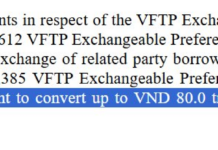German state authorities are intensifying efforts to combat tax evasion among social media influencers, a rapidly growing demographic in the country’s digital economy.
In North Rhine-Westphalia, Germany’s most populous state, officials have established a specialized investigative unit to tackle large-scale tax evasion by influencers.
Stephanie Thien, head of the state’s Financial Crime Agency, revealed that her team is analyzing approximately 6,000 datasets from social media platforms, uncovering undeclared income from views and product endorsements.

Approximately 200 influencers have been prosecuted. (Illustrative image)
“We know there’s a lot of money circulating, and not all of it is being taxed properly,” Thien told AFP.
Like many countries, Germany has seen a surge in TikTok, Instagram, and other platform influencers. The German Digital Economy Association (BVDW) reports that influencer marketing budgets rose from €223 million in 2019 to €477 million in 2022.
Prior to this crackdown, North Rhine-Westphalia prosecuted around 200 local influencers, with some accused of evading millions in taxes.
Other states, including Hamburg and Thuringia, are also investigating similar cases.
Christian Gebert, CEO of Steuerberaten.de, notes that many influencers, especially young, fast-rising stars, are often unaware of their tax obligations.
“Some come to us saying, ‘I’ve been doing this for 2–3 years but never thought about taxes.’ Rapid success leaves many unprepared for tax responsibilities,” Gebert explained.
Should Shareholder Departure Be Delayed for Tax-Indebted Companies?
The proposed amendments to the Law on Tax Administration introduce a provision that would restrict the departure of individuals who own a 25% or greater stake in a business if that business has outstanding tax liabilities. The Vietnam Chamber of Commerce and Industry (VCCI) has voiced strong opposition to this measure, deeming it inappropriate and urging the drafting body to remove it from the bill.
“Condo Administration: The Maintenance Fund Remains a ‘Hot Topic’”
The new laws, including the Land Law of 2024, the Real Estate Business Law of 2023, and the Housing Law of 2023, have been in effect for a year now and are gradually being implemented in practice. However, there are still many challenges and inconsistencies in both the legal provisions and their interpretation and application by managing authorities. Saigon Economic Magazine presents a series of articles analyzing notable issues in the implementation of these legal documents.
What Are the Consequences of Renting Out an Undeclared House?
“Renting out properties, whether it’s residential, commercial, or even industrial spaces, has become a significant source of income for many. The rental market is thriving, and for good reason – it offers a steady stream of revenue and can be a lucrative venture for those with the right assets. From cozy apartments to sprawling warehouses, there’s a demand for it all. It’s an exciting time to be a landlord, that’s for sure!”
What Are the Consequences of Renting Out a Property Without Paying Taxes?
“Renting out properties, whether it’s residential, commercial, or even industrial spaces, has become a significant source of income for many. The practice of leasing is a lucrative business, and those who engage in it are reaping the financial benefits.”











































